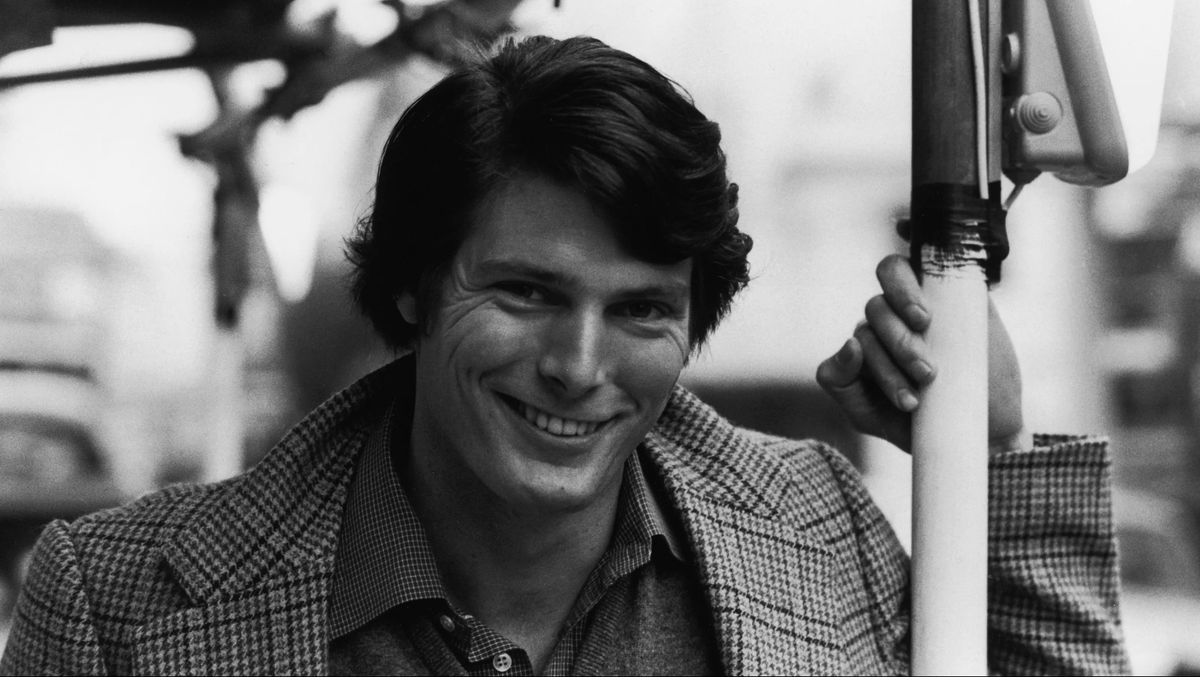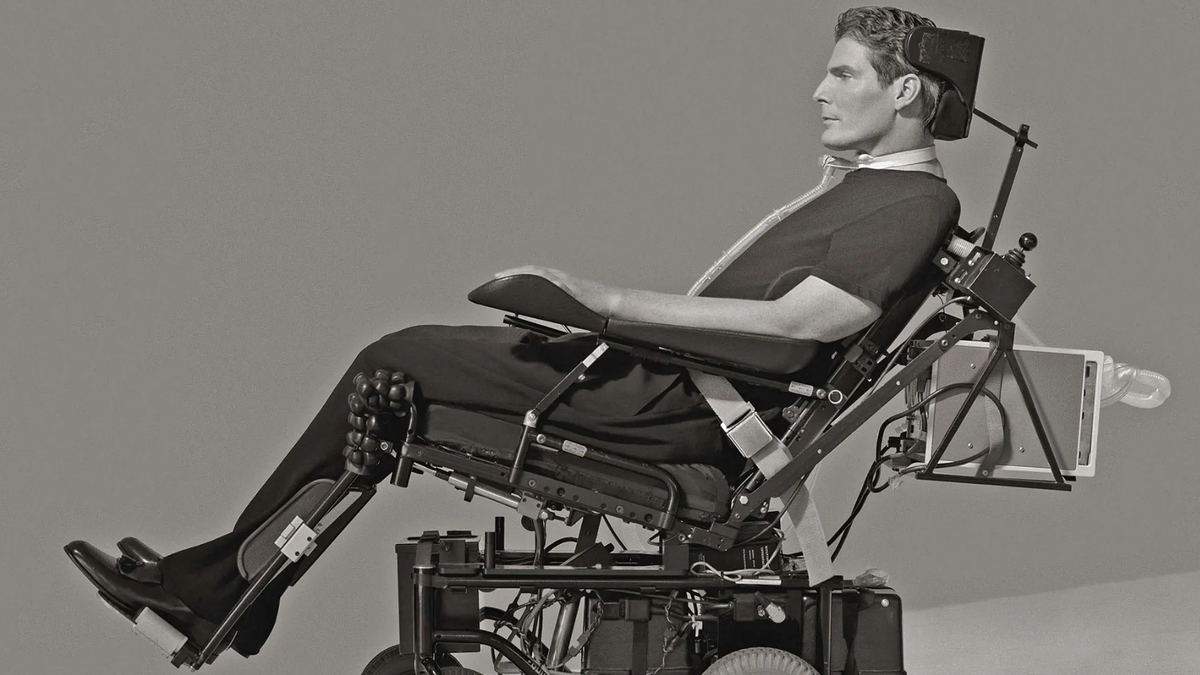In their new HBO documentary, directors Ian Bonhôte and Peter Ettedgui manage to soar above the Kryptonian shackles of standard biographical fare, crafting a telling personal account of the charming icon beloved by so many. The figure at its heart was best known for the unmistakable fanfare that preceded his arrival, but whose tragic equestrian accident later in life left him paralysed from the neck down. Rather than a linear retelling of Reeveâs life, the documentary oscillates between the apex of his Hollywood career and the rock-bottom of his personal tragedy, while balancing the myth of Superman with the flesh-and-blood man behind the cape.

With his sweet, double-dimpled smile betraying his towering, chiselled frame, Christopher Reeve was not just an actor playing a superhero; for many, he was Superman. Bonhôte and Ettedgui wisely assume that the audience doesnât need much introduction to the iconic figure who, in 1978, soared onto the big screen with the perfect combination of all-American gallantry and Hollywood charisma. The documentary taps into that shared cultural memory, opening with the exciting notes from John Williamsâ seminal theme and recontextualizing scenes from Superman and Superman II with a fresh lens that taps into our collective nostalgia.
Super/Man: The Christopher Reeve Story (English)
Director: Ian Bonhôte and Peter Ettedgui
Cast: Christopher Reeve, Alexandra Reeve Givens, Matthew Reeve, Will Reeve, Robin Williams
Runtime: 104 minutes
Storyline: When a horse-riding accident leaves him paralysed in 1995, actor Christopher Reeve spends the rest of his life searching for a cure for spinal cord injuries
Much of the filmâs emotional beats stem from the manner in which it highlights the dissonance between the mythology of Superman with the reality of Reeveâs own life. The superhero who personified invulnerability and hope became the embodiment of fragility after his accident â a twisted irony that was inevitably the subject of many cruel headlines at the time.Â
The directors use archival footage, home videos, and deftly selected film clips to draw a striking contrast between the exemplary Superman of our collective imagination and the real Reeve â admittedly not always a perfect man but certainly an admirable one. Reeve was famously ambivalent about being typecast as Superman, often pushing against the limits of Hollywoodâs superhero mould. He sought to prove his chops in dramas, thrillers, and even comedies, but audiences only ever seemed to want to see him be the Man of Steel. While the role propelled him to the status a pop-culture god, it was the fortitude with which he faced his life after the accident that solidified his legacy as something more: a man whose greatest strength wasnât flight, but his refusal to stay grounded by circumstance.

A still from âSuper/Man: The Christopher Reeve Storyâ
| Photo Credit:
HBO
There is no whitewashing of his darkest hours post-accident, particularly when Reeve himself admits that waking up paralysed felt like entering his own personal nightmare. âIt dawned on me that I had ruined my life and everyone elseâsâ â Bonhôte and Ettedgui incorporate the intimacy of Reeveâs own recordings, making the film feel more like a conversation with the late actor than a documentary about him. His voice, preserved through old interviews, injects an immediacy that places him at the centre of his own story, even as his body recedes into memory.
They also resist the temptation to turn Reeve into an untouchable saint or a symbol of tragedy, and instead allow his complexities to breathe. The filmmakers donât just present Reeve as the idealistic crusader for disability rights, but give space to his frustrations, his ambivalence toward being typecast as Superman, and his deeply human struggles with the new limits imposed on his life.

The pacing is reflective, yet never slow. It understands that Reeveâs story is not simply one of triumph over adversity, but a complex narrative of loss, resilience, and activism. Where many documentaries might fall prey to over-sentimentality, Super/Man tempers its emotion with grounded moments of introspection. Through candid interviews with friends and fellow stars like Robin Williams, Glenn Close and Susan Sarandon, as well as Reeveâs own reflections captured in archival audio, the film paints a poignant portrait of a man who both loved and grew resentful of the cape that had vaulted him to fame.
It also spotlights the unsung heroism of Dana Reeve, whose resilience quietly paralleled her husbandâs public battle. While Christopherâs determination was in the spotlight, Dana bore the silent weight of caregiving, advocacy, and, ultimately, her own cruel terminal diagnosis just two years after his death. A heartbreaking poem read out by their son Matthew revealed to her the tragedy of her strength, not as a secondary figure, but as a woman whose unwavering grace embodied a quieter, yet no less heroic, fight.Â

A still from âSuper/Man: The Christopher Reeve Storyâ
| Photo Credit:
HBO
And yet, the documentary is far from bleak. A major portion of the film is its exploration of Reeveâs activism, particularly his relentless efforts to fund research for spinal cord injuries and his push for the Christopher and Dana Reeve Paralysis Act. We witness his transformation from an actor once confined by the glamorous Hollywood system to a fierce advocate for the disabled â a man who, in many ways, grew more influential after his accident than during his film career. The poignancy of these moments is only deepened by the contributions of his children, who reflect on their fatherâs legacy with a blend of reverence and vulnerability.
Cuts to symbolic imagery are interspersed throughout the narrative, like the motif of an obsidian statue of Reeve floating in space â cracked, frozen and caked in green Kryptonite shards â a metaphor for the man who, despite being broken, remained a beacon of hope. Even as his body failed him, Reeve found a way to inspire, not as Superman, but as a man who understood the power of resilience.

In this way, Super/Man quietly suggests that Reeveâs greatest role wasnât Superman after all â it was the man he became in the face of unimaginable adversity. In a quiet, beautiful manner, the film makes a powerful argument: that a personâs strength is not measured by their ability to move faster than a speeding bullet, but by their ability to continue fighting when the ground has fallen out from beneath them.
Super/Man: The Christopher Reeve Story is currently running in theatres
Published – October 11, 2024 04:50 pm IST
